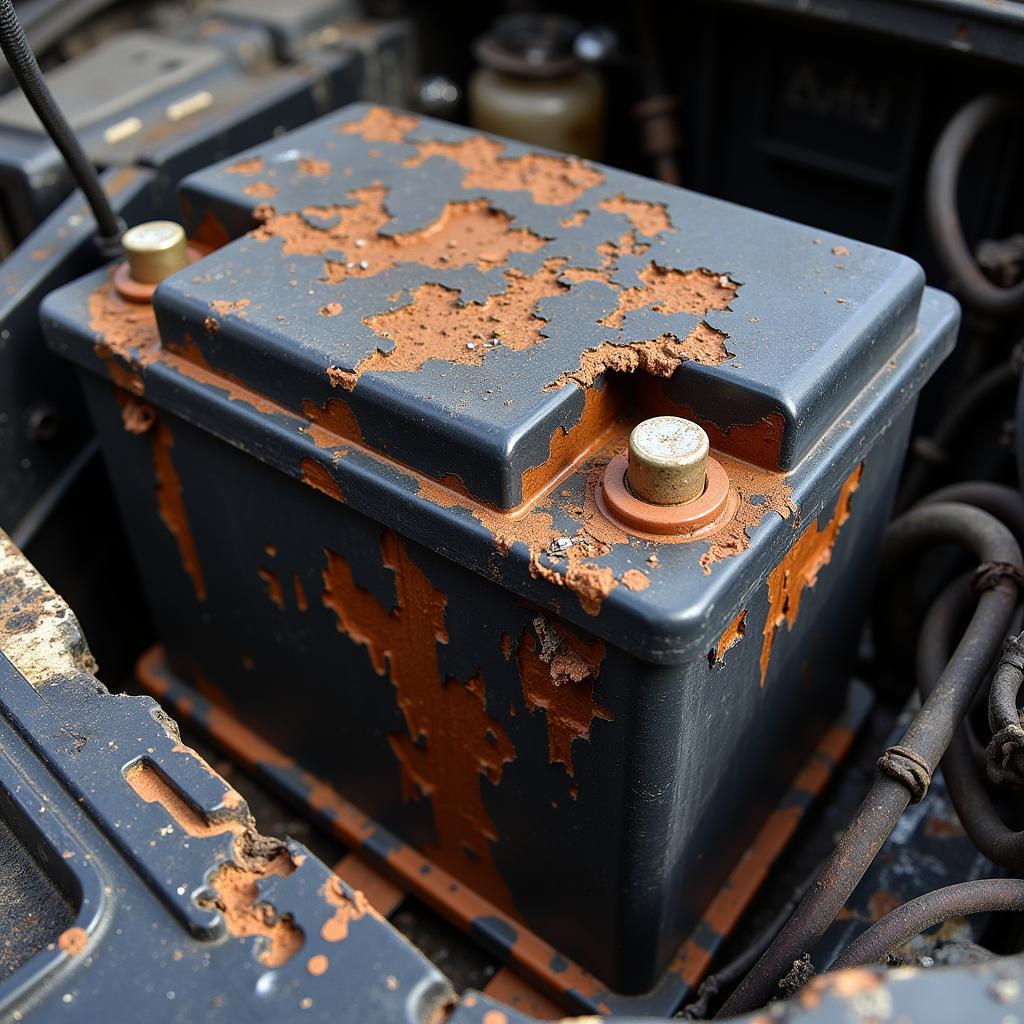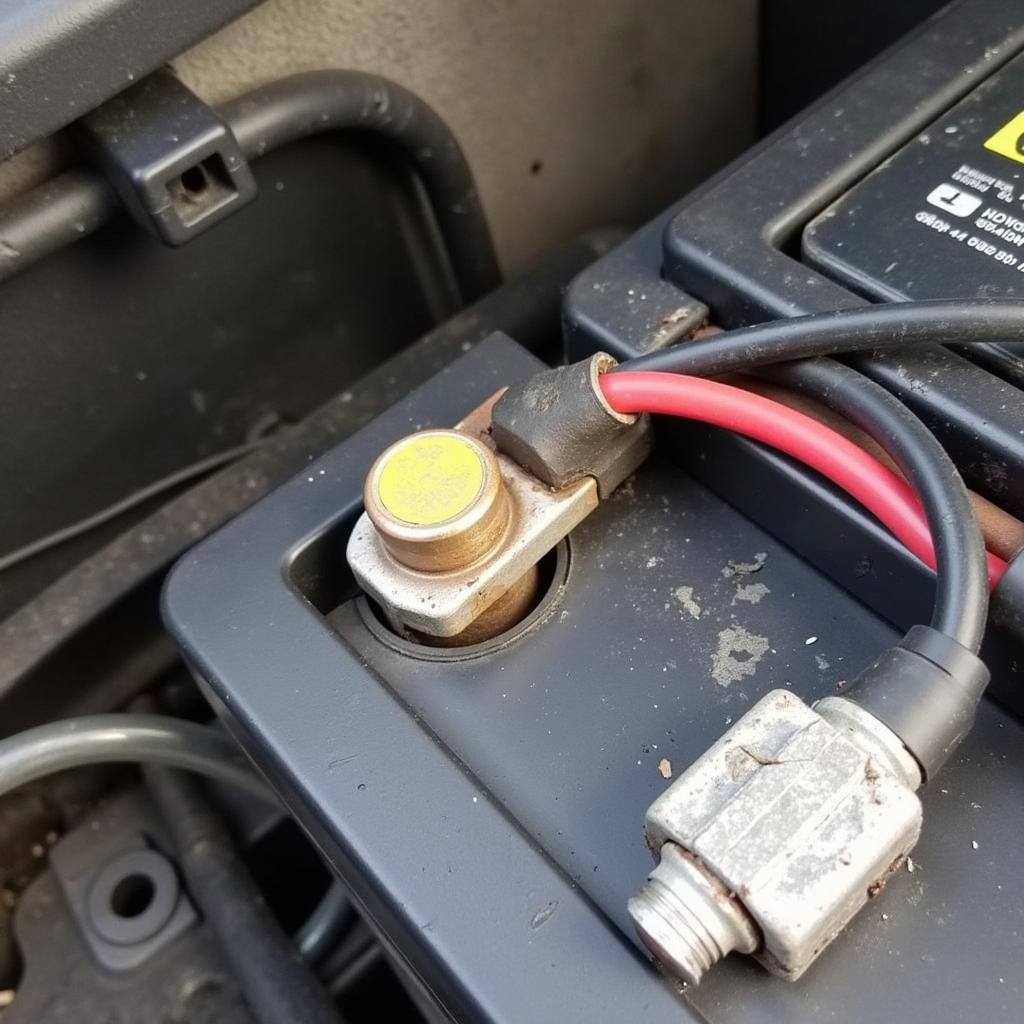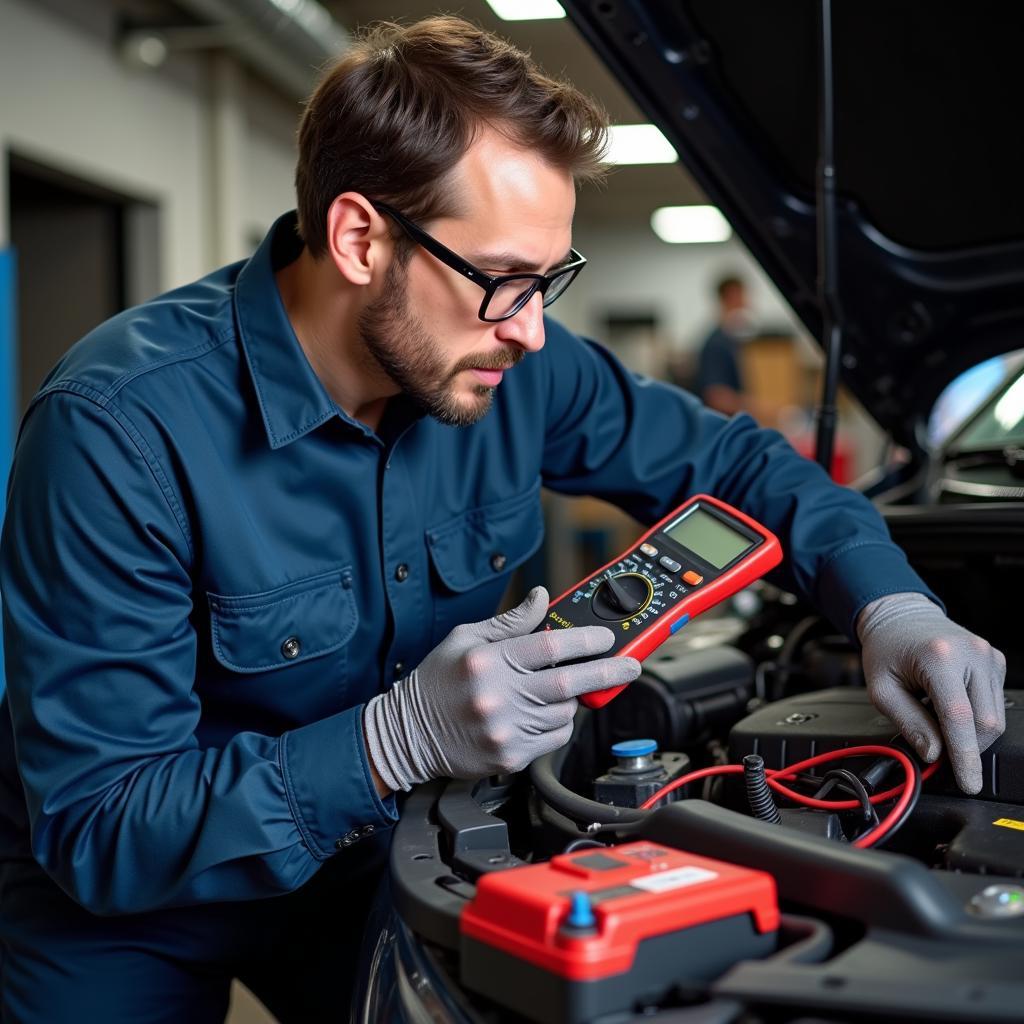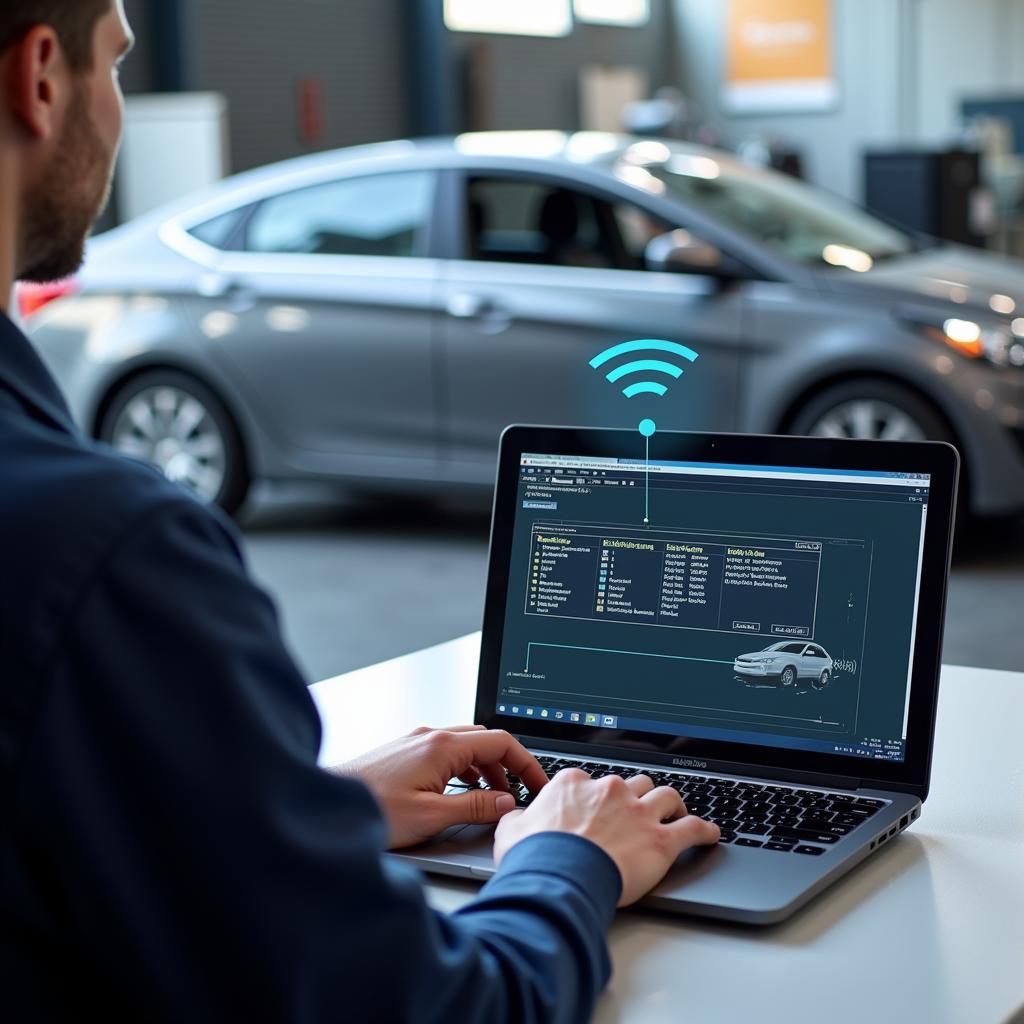A short circuit in your car battery can be a frustrating and potentially dangerous situation. It can leave you stranded, damage your vehicle’s electrical system, and even cause a fire. Understanding what causes a short circuit, how to identify the symptoms, and knowing the solutions can save you time, money, and potential harm. See how you can identify and rectify a short circuit car battery issue quickly and efficiently.
 Damaged Car Battery from Short Circuit
Damaged Car Battery from Short Circuit
What Causes a Short Circuit Car Battery?
A short circuit occurs when a positive and negative terminal of the battery are connected by a low-resistance path, bypassing the intended circuit. This can happen for several reasons:
- Faulty Wiring: Damaged or worn-out wiring insulation can expose the conductors, creating a path for a short circuit. This is often due to age, heat, or rodent damage.
- Loose Connections: Loose battery terminals or connections within the electrical system can create a spark, leading to a short circuit.
- Metal Objects: Dropping a metal tool or other conductive object across the battery terminals can immediately cause a short circuit.
- Internal Battery Failure: A damaged internal component within the battery, such as a broken separator between the positive and negative plates, can cause an internal short circuit.
- Parasitic Drain: Even when the car is off, certain electrical components continue to draw power. A malfunctioning component or circuit can draw excessive current, leading to a short circuit over time. You can find more information about parasitic drain in this article: 2006 mustang battery drain problem.
 Short Circuit Caused by Damaged Wiring
Short Circuit Caused by Damaged Wiring
Identifying the Symptoms of a Short Circuit Car Battery
Several symptoms can indicate a short circuit in your car battery:
- Dim or Flickering Lights: A short circuit can cause a significant voltage drop, resulting in dim or flickering headlights, interior lights, or dashboard lights.
- Burning Smell: A strong, acrid smell often accompanies a short circuit, indicating burning insulation or melting plastic.
- Overheating Battery: The battery can become excessively hot to the touch due to the high current flow.
- Difficulty Starting the Engine: The starter may struggle to turn over or not work at all, even with a fully charged battery. If you recently changed your battery and the check engine light came on, you might want to check this article: changed battery check engine light came on.
- Clicking Sound When Starting: A rapid clicking sound when you turn the key indicates that the starter is trying to engage but lacks sufficient power due to the short circuit. If you suspect your new car battery is draining fast you can find more information here: new battery draining fast car.
“A common mistake people make is ignoring the early signs of a short circuit. A burning smell, however faint, should never be disregarded,” says John Miller, a senior automotive electrical engineer.
Solutions for a Short Circuit Car Battery
Dealing with a short circuit requires careful attention and safety precautions:
- Disconnect the Battery: Immediately disconnect the negative battery cable to prevent further damage and reduce the risk of fire.
- Inspect the Wiring: Carefully examine all wiring connected to the battery for damage, fraying, or loose connections. Look for signs of burning or melting. Understanding car radio wiring color codes can be helpful here. Check out our article on car radio wiring color codes.
- Tighten Connections: Ensure that the battery terminals and all other connections are secure and free of corrosion.
- Remove Metal Objects: Check for any metal objects that may be bridging the battery terminals or contacting other exposed wires.
- Test the Battery: Once the potential short circuit has been addressed, test the battery’s voltage and condition. If the battery is damaged or significantly discharged, it may need to be replaced. Wondering if jumper cables can charge a dead battery? Find out here: will jumper cables charge a dead battery.
- Seek Professional Help: If you are unable to identify or fix the short circuit, it is crucial to consult a qualified automotive electrician. They have the expertise and equipment to diagnose and repair complex electrical issues safely.
 Mechanic Repairing a Short Circuit
Mechanic Repairing a Short Circuit
Conclusion
A short circuit car battery can be a serious issue, but understanding its causes, symptoms, and solutions can help you prevent damage and ensure your safety. By taking prompt action and addressing the underlying problem, you can keep your car running smoothly and avoid potentially dangerous situations. Remember, a little preventative maintenance can go a long way in preventing a short circuit car battery.
“Regularly inspecting your car’s electrical system, especially the battery and wiring, can prevent many short circuit issues,” adds Maria Sanchez, an experienced auto technician.
FAQ
-
Can a short circuit car battery cause a fire? Yes, a short circuit can generate significant heat, potentially igniting flammable materials near the battery.
-
How can I prevent a short circuit in my car battery? Regular maintenance, including inspecting wiring and connections, can help prevent short circuits.
-
What should I do if I smell a burning smell coming from my car battery? Immediately disconnect the negative battery terminal and investigate the source of the smell.
-
Can I fix a short circuit myself? If you have some automotive electrical experience, you may be able to identify and fix simple short circuits. However, it’s always best to consult a professional if you’re unsure.
-
How often should I check my car battery connections? It’s a good idea to check your battery connections at least every few months, or more frequently if you live in a harsh climate.
-
What tools do I need to diagnose a short circuit car battery? A multimeter is essential for testing voltage and continuity.
-
Can a short circuit damage other electrical components in my car? Yes, a short circuit can cause voltage spikes and surges that can damage sensitive electronic components.


